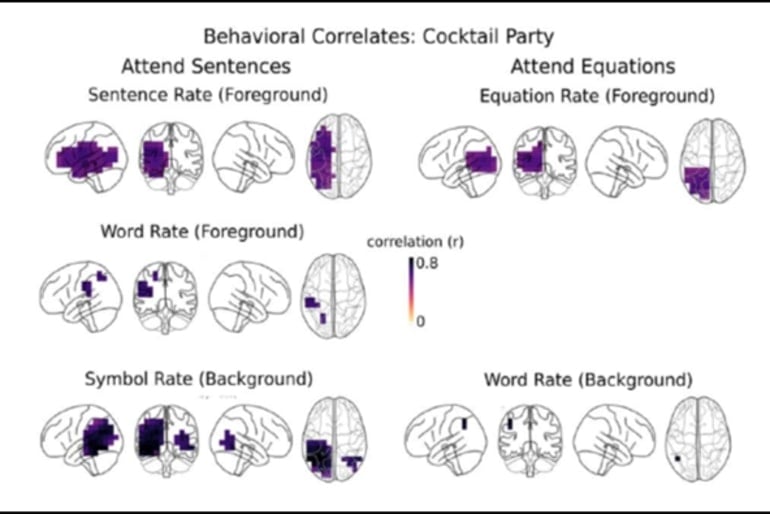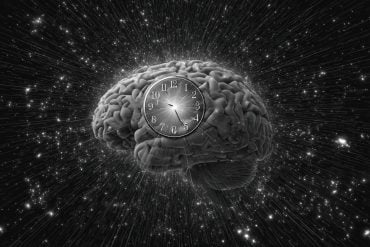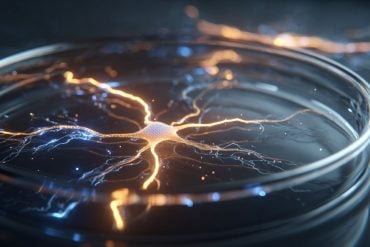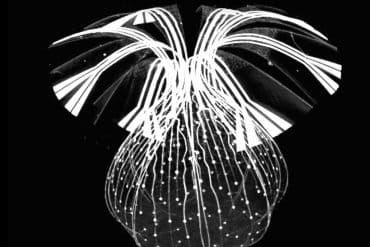Summary: Study reveals how the brain analyzes different types of speech which may be linked to how we comprehend sentences and calculate mathematical equations.
Source: SfN
Separate math and language networks segregate naturally when listeners pay attention to one type over the other, according to research recently published in Journal of Neuroscience.
Mathematical language borrows words from everyday speech, yet the brain processes math and language in two separate networks.
While previous studies examined how these networks process written numbers and words, few looked at the processing of spoken mathematical language.
Kulasingham et al. used MEG to measure the brain activity of participants while they listened to recordings of simple math equations (five plus one is six) and sentences (cats drink warm milk). In a “cocktail party paradigm,” the equations and sentences played at the same time and participants had to focus on one and ignore the other.
Equations triggered activity in the parietal lobe, an area involved in number processing, and sentences triggered activity in the temporal lobe, a language region.

Brain activity oscillated with, or tracked, every word and math symbol, indicating the brain processes their acoustics even if attention was directed away from them.
Activity also tracked each sentence or equation — whichever stimulus was focused on — despite the lack of any pauses or inflections to distinguish them from each other.
The results reveal how the brain analyzes the features of different kinds of speech, which may be linked to how we comprehend sentences and calculate equations.
About this language processing research news
Author: Calli McMurray
Source: SfN
Contact: Calli McMurray – SfN
Image: The image is credited to Kulasingham et al., JNeurosci 2021
Original Research: Closed access.
“Cortical Processing of Arithmetic and Simple Sentences in an Auditory Attention Task” by Joshua P. Kulasingham, Neha H. Joshi, Mohsen Rezaeizadeh and Jonathan Z. Simon. Journal of Neuroscience
Abstract
Cortical Processing of Arithmetic and Simple Sentences in an Auditory Attention Task
Cortical processing of arithmetic and of language rely on both shared and task-specific neural mechanisms, which should also be dissociable from the particular sensory modality used to probe them.
Here, spoken arithmetical and non-mathematical statements were employed to investigate neural processing of arithmetic, compared to general language processing, in an attention-modulated cocktail party paradigm.
Magnetoencephalography (MEG) data were recorded from 22 human subjects listening to audio mixtures of spoken sentences and arithmetic equations while selectively attending to one of the two speech streams. Short sentences and simple equations were presented diotically at fixed and distinct word/symbol and sentence/equation rates.
Critically, this allowed neural responses to acoustics, words, and symbols to be dissociated from responses to sentences and equations. Indeed, the simultaneous neural processing of the acoustics of words and symbols was observed in auditory cortex for both streams.
Neural responses to sentences and equations, however, were predominantly to the attended stream, originating primarily from left temporal, and parietal areas, respectively.
Additionally, these neural responses were correlated with behavioral performance in a deviant detection task. Source-localized Temporal Response Functions revealed distinct cortical dynamics of responses to sentences in left temporal areas and equations in bilateral temporal, parietal, and motor areas.
Finally, the target of attention could be decoded from MEG responses, especially in left superior parietal areas.
In short, the neural responses to arithmetic and language are especially well segregated during the cocktail party paradigm, and the correlation with behavior suggests that they may be linked to successful comprehension or calculation.
SIGNIFICANCE STATEMENT
Neural processing of arithmetic relies on dedicated, modality independent cortical networks that are distinct from those underlying language processing.
Using a simultaneous cocktail party listening paradigm, we found that these separate networks segregate naturally when listeners selectively attend to one type over the other.
Neural responses in the left temporal lobe were observed for both spoken sentences and equations, but the latter additionally showed bilateral parietal activity consistent with arithmetic processing.
Critically, these responses were modulated by selective attention and correlated with task behavior, consistent with reflecting high-level processing for speech comprehension or correct calculations.
The response dynamics show task-related differences that were used to reliably decode the attentional target of sentences or equations.






